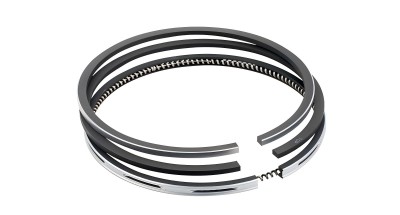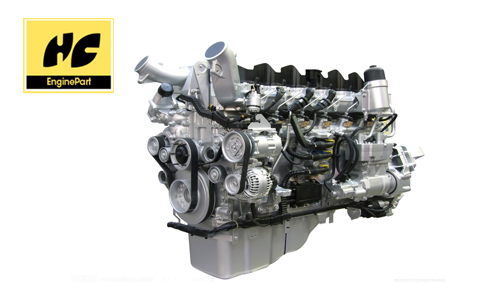- HOME
- PRODUCTS
-
Crankshaft
Crankshaft Perkins 1006.6 6CYL
Crankshaft LovoL-Perkins T160 6 CYL
Crankshaft LovoL-Perkins T135 4 CYL
Crankshaft Perkins 4.236/4.248 4 CYL
Crankshaft Perkins 4.203/D4.203 4 CY
Crankshaft Perkins 3.152 3 CYL
Crankshaft Perkins A3.144 A3.152 AD3.152 3 CYL
Crankshaft Hino J08 13411-E0100
Crankshaft Hino J05 S1341-12281
Crankshaft Hino HO6CT/HO7C 13400-1690
Crankshaft Isuzu 6WG1 1-12310715-2/8-98172014-0
Crankshaft Isuzu 6BG1T 112310-4480
Crankshaft Isuzu 6BD1T 112310-4070
Crankshaft Isuzu 6HK1 8-94396737-4
Crankshaft Isuzu 4HK1 8-98029270-5
Crankshaft Mitsubishi 4M50 ME223935
Crankshaft Mitsubishi 6D22 ME999368
Crankshaft Mitsubishi 6D16T-2 ME131814
Crankshaft Mitsubishi 6D16T-1 ME130937
Crankshaft Mitsubishi 6D16 ME072197/ME032800
Crankshaft Mitsubishi 6D15 ME032364
Crankshaft Mitsubishi 6D34T ME300086
Crankshaft Mitsubishi 6D31T ME082505
Crankshaft Mitsubishi 4D34T ME017354
Crankshaft Mitsubishi 4D34 MEO13668
Crankshaft Mitsubishi 4D31 ME012350/ME013667
Crankshaft EMD645 9547357/9323404/8482822
Crankshaft MAN B&W 12/16/18V 32-40
Crankshaft Komatsu S6D170 6162-33-1201/2
Crankshaft Komatsu S6D155 6127-31-1012
Crankshaft Komatsu S6D140 6211-31-1010
Crankshaft Komatsu S6D125 6151-31-1110
Crankshaft Komatsu S6D114 6742-01-1570
Crankshaft Komatsu S6D110 6138-31-1110
Crankshaft Komatsu S6D108 6222-31-1110
Crankshaft Komatsu S6D107 6754-01-1310
Crankshaft Komatsu S6D105 6136-31-1010
Crankshaft Komatsu S6D102 6735-01-1310
Crankshaft Komatsu S6D95 6207-31-1100
Crankshaft Komatsu S4D95 6204-33-1100
Crankshaft Komatsu S4D102 6732-31-1100
Crankshaft Caterpillar C18 1894918/1950314
Crankshaft Caterpillar C15 221-9360/337-0201
Crankshaft Caterpillar C13 313-3997/2219364
Crankshaft Caterpillar C9 261-1544/282-7958
Crankshaft Caterpillar C7 271-5658
Crankshaft Caterpillar C6.6 2767387/3749163
Crankshaft Caterpillar C6.4 294-1749
Crankshaft Caterpillar 3408 1W5009/1W6209
Crankshaft Caterpillar 3406 6I1453
Crankshaft Caterpillar 3306 4N7693
Crankshaft Caterpillar 3304 4N7692
Crankshaft Mercedes-Benz OM471
Crankshaft Mercedes-Benz OM421
Crankshaft Mercedes-Benz OM422
Crankshaft Mercedes-Benz OM651
Crankshaft Mercedes-Benz OM906
Crankshaft Mercedes-Benz OM502
Crankshaft Mercedes-Benz OM501
Crankshaft Mercedes-Benz OM457
Crankshaft Mercedes-Benz OM442
Crankshaft Mercedes-Benz OM441
Crankshaft Mercedes-Benz OM403
Crankshaft Mercedes-Benz OM402
Crankshaft Mercedes-Benz OM401
Crankshaft Mercedes-Benz OM366
Crankshaft Cummins K19 3096362
Crankshaft Mercedes-Benz OM355
Crankshaft Mercedes-Benz OM352
Crankshaft Mercedes-Benz OM314
Crankshaft Cummins 4BT 3907803/3929036
Crankshaft Cummins NT855 3608833
Crankshaft Cummins 6BT 3907804/3929037
Crankshaft Cummins 6CT 3917320/3918986
Crankshaft Caterpillar S6KT 5I7671/125-3005
Crankshaft Caterpillar S4KT 5I7844/135-2419
Crankshaft Cummins X15 4925761
Crankshaft Cummins NH220 3029341
-
Piston Ring
Piston Ring EMD645 9516928/9516929
Marine Piston Ring SKL NVD 48-2U
Marine Piston Ring SKL NVD 36/24
Marine Piston Ring SKL NVD 26/20
Marine Piston Ring SKL NVD 26-2
Marine Piston Ring MAN B&W 40/54
Marine Piston Ring MAN B&W 23.5/33
Marine Piston Ring MAN B&W 17.5/22
Marine Piston Ring MAN B&W 80MC
Marine Piston Ring MAN B&W K74EF
Marine Piston Ring MAN B&W 70MC
Marine Piston Ring MAN B&W 60MC
Marine Piston Ring MAN B&W 26MC
Marine Piston Ring MAN B&W 50MC
Marine Piston Ring MAN B&W 6L 35MC
Piston Ring Cummins K19 3631248
Piston Ring Cummins M11 3803977
Piston Ring Cummins 6BT 3802230
-
Cylinder Head
Cylinder Head EMD645 9319736/9556060/40021330
Cylinder Head Detroit S60 Series 23525566
Cylinder Head Detroit 71 Series 5102770
Cylinder Head Detroit 53 Series 5198203
Cylinder Head Caterpillar 3204 6i2378
Cylinder Head Caterpillar 3304PC 8N1188
Cylinder Head Caterpillar 3304DI 1N4304
Cylinder Head Caterpillar 3306PC 8N1187
Cylinder Head Caterpillar 3306DI 8N6796
Cylinder Head Caterpillar 3406PC 110-5097
Cylinder Head Caterpillar 3406DI 110-5096
Cylinder Head Caterpillar D342 D8K 8N6000
Cylinder Head Caterpillar 3408A 7N0858
Cylinder Head Caterpillar 3408B 7W2225
Cylinder Head Caterpillar 3412 7W2243
Cylinder Head Caterpillar 3406E / C15 245-4324
Cylinder Head Caterpillar C18 2237263
Cylinder Head Caterpillar C9 312-4207
Cylinder Head Caterpillar C12 1482133
Cylinder Head Caterpillar 3116 1407373
Cylinder Head Caterpillar C7 2195843
Cylinder Head Caterpillar C13 2454031
Cylinder Head Cummins 6BT 3966454
Cylinder Head Cummins 6CT 3973493
Cylinder Head Cummins 4B 3966448
Cylinder Head Cummins ISF2.8 5307154
Cylinder Head Cummins X15 4962731
Cylinder Head Cummins L 5339587
Cylinder Head Cummins ISDE6 3977225
Cylinder Head Cummins ISDE4 4941495
-
Cylinder liner
Cylinder Liner EMD645 9090233/8415993/9318831/9318833
Cylinder Liner Mitsubishi S6R2
Cylinder Liner Mercedes Benz OM366
Cylinder Liner DEUTZ 620 7620.132.004.2
Cylinder Liner DEUTZ 604 7604.132.001.2
Cylinder Liner DEUTZ 236 7236.132.002.2
Cylinder Liner DEUTZ 234 7234.132.002.2
Cylinder Liner Caterpillar D9G 8N9174
Cylinder Liner Caterpillar C32 3221126
Cylinder Liner Caterpillar C16 1326881
Cylinder Liner Caterpillar D343 1260739
Cylinder Liner Caterpillar C11 1979330
Cylinder Liner Caterpillar C10 1482125
Cylinder Liner Caterpillar C9 1903562
Cylinder Liner Caterpillar 3406 1979322
Cylinder Liner Cummins M11 3080760
Cylinder Liner Cummins K19 4009220
Cylinder Liner Cummins NT855 3055099
Cylinder Liner Cummins KV 3022157
Cylinder Liner Cummins ISX 4101507
Cylinder Liner Caterpillar 3306 1105800
-
Piston
Piston EMD645 40003446/40030947
Piston Cummins ISX CM570 4367126
Piston Cummins ISX CM870/CM871 4367161
Piston Cummins ISX CM870/CM871 4367173
Piston Cummins ISX15/QSX15 3688099
Piston Cummins ISX15/QSX15 3687897
Piston Cummins ISX15/QSX15 3688100
Piston Cummins QSX CM570 4298992
Piston Cummins ISX CM870/CM871 4923743
Piston Caterpillar C13 3889356
Piston Caterpillar C13 3889353
Piston Caterpillar C13 3882310
Piston Caterpillar C13 3220329
Piston Caterpillar C15 3466615
Piston Caterpillar C15 3889354
Piston Caterpillar C15 3564787
Piston Detroit 60 SERIES 23521802
Piston Detroit DD13 A4710371601
Piston Cummins ISX CM570 4357150
Piston Cummins ISX CM570 4367132
Piston Cummins ISX CM570 4357149
Piston Cummins QSX CM570 4298991
Piston Caterpillar C15 3569946
Piston Detroit 60 SERIES 23530601
-
Bearing
-
Crankshaft
- ABOUT US
- Manufacture
- news
- contact us



